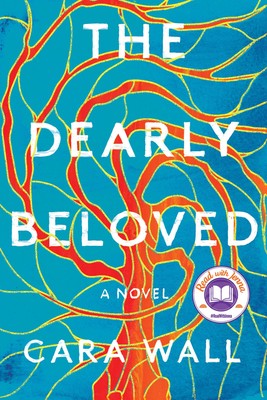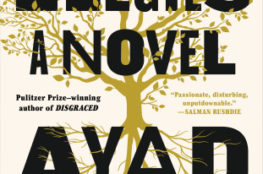Redefining the Love that Makes a Difference
Novels built around relationships are nothing new, but a story built around a quartet of relationships worked out as beautifully as Cara Wall’s new novel is a real gem. The author creates an intricate portrait of two couples that come from very different families and places, but by virtue of the husbands’ professions find themselves living in close proximity. The husbands are clergy who serve a large urban church. Their spouses are “ministers wives” who face the challenges of living in a glass house while figuring out what shape they want to give to their own lives.
Lily is a capable adult woman who carries the adolescent wounds of losing both of her parents in a car accident. She is chilly, intellectual, and opinionated. James, the tireless activist, grew up in a family struggling with poverty and the instability of a mean alcoholic father. Charles is a scholar, raised by a professorial father and educated in the ivory tower. His story seems predictable until he attends a lecture on Joan of Arc, and like the heroine feels called to an unlikely mission, in his case the ministry. And then there is Nan, nice to a fault, raised by a kind and generous clergy family, ideally prepared to be a minister’s wife.
The story of these two couples is not a “Bob & Carol & Ted & Alice” story. There is no rule breaking and no partner swapping to juice up the plot, which is light on scandal, but is heavy with sadness. The struggles that break into the lives of these four people are those experienced by many people. That is what is extraordinary about Wall’s story. She avoids the canned dramas of murder, scandal, and crime. Her dramatic touch points find her readers where they have lived.
Charles suffers a deep depression driven by religious doubt. James faces being fired by those members of the church who object to the social action projects to which he commits himself. Jane, who never wanted to be a mother at all, gives birth to a special needs child, and Nan, who was born to be a mother, suffers from infertility. Although these are all personal struggles, their ripple effects impact the church.
The time frame of Wall’s story is significant. The opening scenes are set in 1953 and occur on the coattails of the Greatest Generation. The children of those survivors of World War II — Charles & Nan & Lily & James — are boomers. They know the world is changing, and they are trying to figure out where it is going and how to find a place for themselves in it. They have choices to make: to believe or not to believe, to keep expectations or to break them, to be a fighter or a peacemaker.
Cara Wall has written a true boomer drama, and to her credit she has avoided all the flash and dazzle that boomers sometimes flaunt in claiming how progressive their generation was. Wall dares to dig deeper and expose the uncertainty that is the legacy of the boomers after all the long hair and psychedelic colors have faded. She brings the church into the mix, not in an idealistic way or in a critical one, but with honesty.
The role of the church is exemplified in a fifth character, Jane Atlas the church secretary, who were it not for her unusual name might go unnoticed. She is the “fifth business,” that character in a play, who though not a hero or heroine, carries the plot to its conclusion. Her surname is reminiscent of Atlas, who in Greek mythology is the character who holds up the heavens and comes through when the sky is falling.  Her plain Jane first name is a reminder that her work is behind the scenes and often unacknowledged. She is like so many steadfast women in the church, who keep it alive by fostering the connections between people and continuing on when others give up.
Her plain Jane first name is a reminder that her work is behind the scenes and often unacknowledged. She is like so many steadfast women in the church, who keep it alive by fostering the connections between people and continuing on when others give up.
In a final scene, at a baptism after fraught times and in the presence of struggling characters, Wall reveals the meaning of her book’s title. It is not the abiding marital love of the couples that has helped them endure, because their relationships were often on thin ice. It is a different kind of love entirely that has given them somewhere to stand. Charles addresses the people of his church, his dearly beloved:
…the people of the church were his beloved, so dear that as he spoke his heart and throat grew tight. He loved every person in this church more than he would have ever thought possible, loved them not with the automatic love of childhood or the easy love of coincidence, but with the tautly stitched love of people who have faced uncertainty together, who have stuck it out, the strong love of people who looked to their side while suffering and saw the other there.
Charles, the modern intellectual, the man of faith who has been shaken by doubt, is also the character Wall uses in the last sentences of the story to both echo and challenge the famous words of Julian of Norwich, the 14th century mystic, the author of Revelations of Divine Love. Her unshaken confidence in divine love, despite plague, famine, and immense suffering, has echoed down through the centuries: “All shall be well, and all shall be well, and all manner of things shall be well.”
Charles’s confidence is less bold. Times have changed. Faith is difficult. Doubt is easy. Nonetheless in a statement of hope, unusual for a modern author Wall says: “Charles knew all was not well. All was not well, all would not be well, but all was not lost.”



